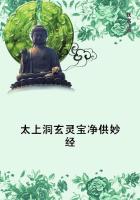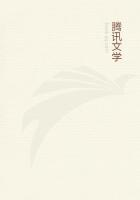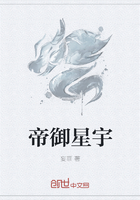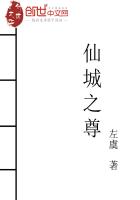Some movement was brought into this authority, which had settled into perfect peace and security and let no dreams of other matters cross its path, by the chance dispute of Mendelssohn with Jacobi, first as to whether Lessing had been a disciple of Spinoza, and then regarding the doctrines of Spinoza himself. On this occasion it came to light how much Spinoza was really forgotten, and in what horror Spinozism was held. But while Jacobi in this way once more unexpectedly brought to remembrance in connection with Spinozism a quite different content of philosophy, faith, i.e., the simply immediate certainty of external, finite things, as well as of the divine (which faith in the divine he called reason) was certainly placed by him, as an independent thinker, in opposition to mediating knowledge, which he apprehended as mere understanding. This continued until Kant gave a new impulse in Germany to philosophy, which had died out in the rest of Europe.
As far as the transition to modern German philosophy is concerned, it is from Hume and Rousseau, as we have said (pp. 369, 374, 402), that it took its start. Descartes opposes extension to thought, as what is simply one with itself. He is charged with dualism, but, like Spinoza and Leibnitz, he did away with the independence of the two sides, and made supreme their unity, God.
But, as this unity, God is first of all only the Third; and He is further determined in such a way that no determination pertains to Him. Wolff's understanding of the finite, his school metaphysics generally, his science of the understanding, and his divergence into the observation of nature, after it has grown strong in its conformity with law and in its finite knowledge, turns against the infinite and the concrete determinations of religion, and comes to a standstill with abstractions in his theologia naturalis; for the determinate is his domain. But from this time an utterly different point of view is introduced. The infinite is transported into abstraction or incomprehensibility. This is an incomprehensible position to adopt. Nowadays it is looked on as most pious, most justifiable. But as we see the third, the unity of difference, defined as something which cannot be thought or known, this unity is not one of thought, for it is above all thought, and God is not simply thought.
Nevertheless this unity is defined as the absolutely concrete, i.e., as the unity of thought and Being.
Now we have come so far that this unity is a unity simply in thought, and pertaining to consciousness, so that the objectivity of thought - reason - comes forth as One and All. This is dimly conceived by the French. Whether the highest Being, this Being divested of all determination, is elevated above nature, or whether nature or matter is the highest unity, there is always present the establishing of something concrete, which at the same time belongs to thought.
Since the liberty of man has been set up as an absolutely ultimate principle, thought itself has been set up as a principle. The principle of liberty is not only in thought but the root of thought; this principle of liberty is also something in itself concrete, at least in principle it is implicitly concrete.
Thus far have general culture and philosophic culture advanced. Since what is knowable has now been placed entirely within the sphere of consciousness, and since the liberty of the spirit has been apprehended as absolute, this may be understood to mean that knowledge has entered altogether into the realm of the finite. The standpoint of the finite was at the same time taken as ultimate, and God as a Beyond outside consciousness; duties, rights, knowledge of nature, are finite. Man has thereby formed for himself a kingdom of truth, from which God is excluded; it is the kingdom of finite truth. The form of finitude may here be termed the subjective form; liberty, self-consciousness [Ichheit] of the mind, known as the absolute, is essentially subjective - in fact it is the subjectivity of thought. The more the human reason has grasped itself in itself, the more has it come down from God and the more has it increased the field of the finite. Reason is One and All, which is at the same time the totality of the finite; reason under these conditions is finite knowledge and knowledge of the finite. The question is, since it is this concrete that is established (and not metaphysical abstractions), how it constitutes itself in itself; and then, how it returns to objectivity, or abrogates its subjectivity, i.e., how by means of thought God is to be again brought about, who at an earlier time and at the beginning of this period was recognized as alone the true. This is what we have to consider in the last period, in dealing with Kant, Fichte, and Schelling.
1. S?mmtliche Schriften, Vol. XXXIX. (Berlin u. Stettin, 1828), pp. 111, 112.
2. Lessing's S?mmtliche Schriften, Vol. XXIX. pp. 122, 123.
Section Three: Recent German Philosophy A. Jacobi.


